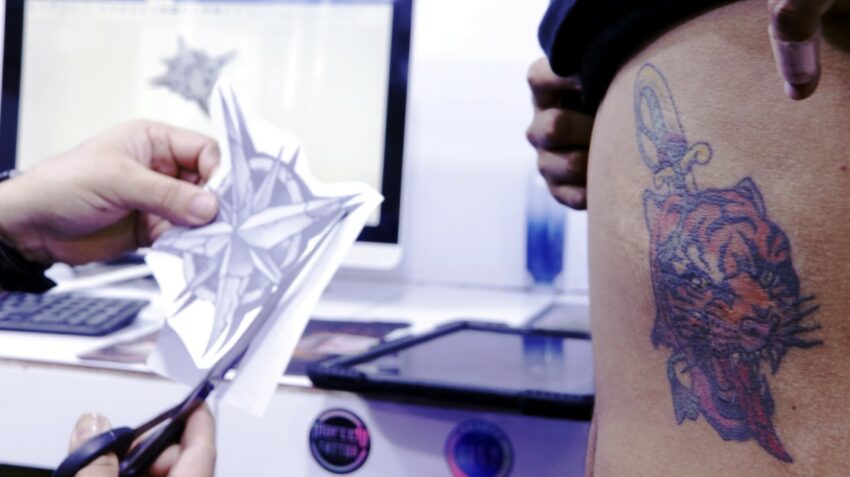In the wake of the state of exception and internal armed conflict declared on January 9, 2024, the demand for tattoo studios in Guayaquil has experienced an unexpected shift.
Tattoo artists in Guayaquil are witnessing a surge in clients seeking to ‘recycle’ or cover up tattoos associated with criminal gangs, as symbols once chosen with personal significance have transformed into stigmatizing markers under the heightened scrutiny of the authorities.
Andrés, a 26-year-old resident, recently decided to modify a tattoo he got four years ago – a 15-centimeter tiger head pierced by a dagger – associated with the criminal gang Los Tiguerones. The declaration classifying 22 drug gangs in Ecuador as terrorists intensified the focus on identifying criminals through their tattoos, particularly those featuring wild animals like tigers, wolves, eagles, or lizards.
Andrés, preferring to remain anonymous, sought refuge in a south Guayaquil tattoo studio to conceal his tiger tattoo. Originally meant to cover a childhood burn scar, the tiger now carried an unintended association. At the age of eight, while cooking some tortillas, the pan tipped over and the boiling oil burned him at the height of his ribs (left side), he said. The rising pressure since the declaration of the armed internal conflict, led him to spend $200 to replace the tiger head with a large compass rose, indifferent to the new symbol’s meaning.
“I never thought it would become something of a bad reputation,” Andrés remarked.
The ‘cover-up’ trend has gained momentum over the past year, coinciding with Guayaquil’s escalation as the epicenter of violence in the country. Marcelo Parrales, a tattoo artist with a decade of experience at Marcelo Tattoo, noted a decline in people’s interest in new tattoos due to the pervasive crime levels. Instead, a growing number of clients seek to erase or remodel existing tattoos, especially those tied to organized crime.
Tattoo studios in Guayaquil are now handling up to a hundred monthly quotes and inquiries related to tattoo transformations, according to the API Agency in Guayaquil. People from various backgrounds, drawn to the strength symbolism of wild animals, are now grappling with the fallout from the war on crime.
‘Cover-ups’ more common than laser removal
Parrales revealed that sessions to erase tattoos at Marcelo Tattoo start at $30, primarily for smaller works under five centimeters. The process of ‘covering up’ has become a more economical and less painful alternative compared to laser removal.
Goura Grajirena, owner of 11-11 Gallery Tattoo studio, echoed the sentiment, stating they have seen a notable increase in clients seeking to conceal tattoos rather than creating new ones. Covering tattoos with ink proves to be a more cost-effective and less painful solution than laser removal, which at Grajirena’s studio can cost between $70 and $150 per session, requiring 8 to 10 sessions.
Recent trends at Grajirena’s studio include covering symbols associated with Los Latin Kings, a gang that shifted from pacification to criminal activities in Durán. Wolves, tigers, and lions are the most commonly covered tattoos, with clients citing safety concerns and social stigmatization as primary reasons for seeking modification.
The leader of Los Choneros, Adolfo Macías, known as ‘Fito,’ identified with lions, prompting even those associated with the criminal group to undergo tattoo transformations. Additionally, flags of Puerto Rico, along with their colors, have become symbols related to the Chone Killers, reflecting the origin of one of their top leaders.
As the conflict in Ecuador continues, tattoo studios in Guayaquil are navigating this unique demand for ‘cover-up’ services, providing a canvas for individuals to reshape their identities in the face of evolving societal dynamics.


0 Comments